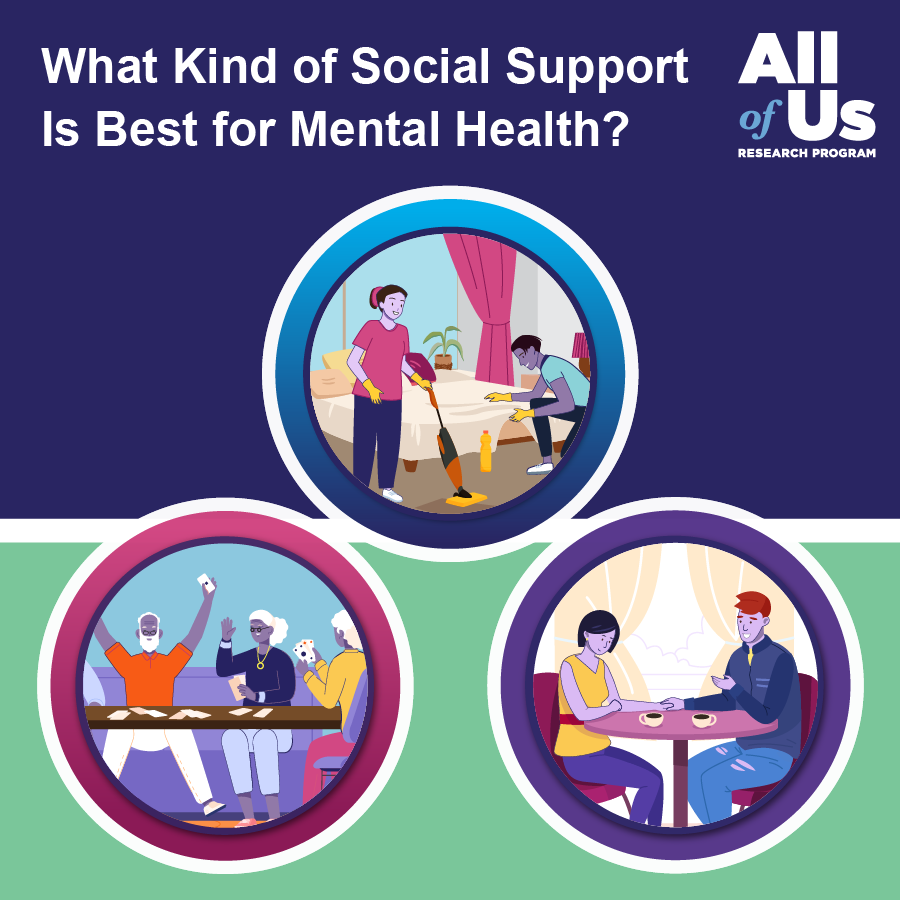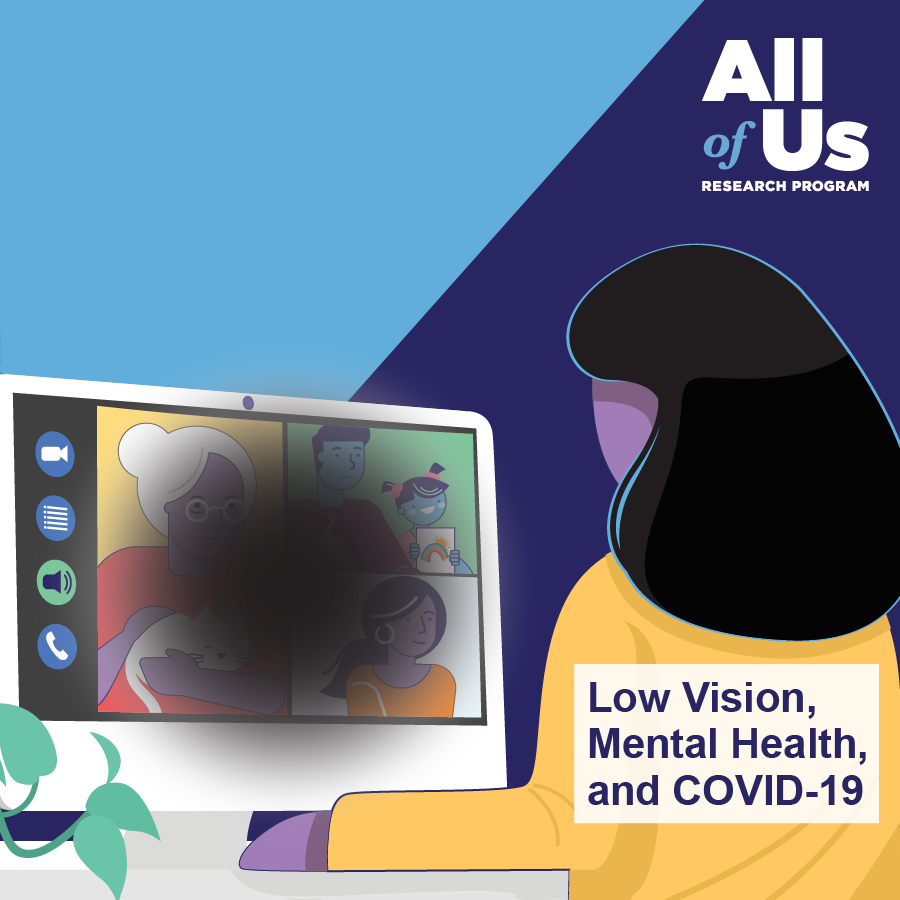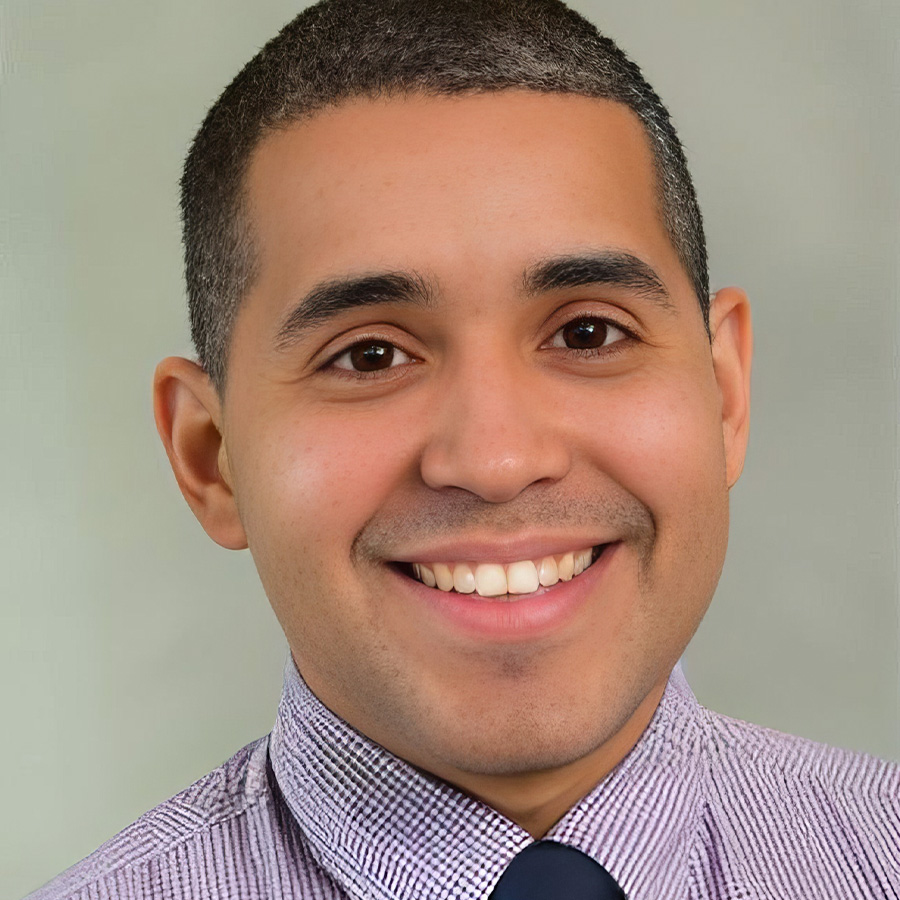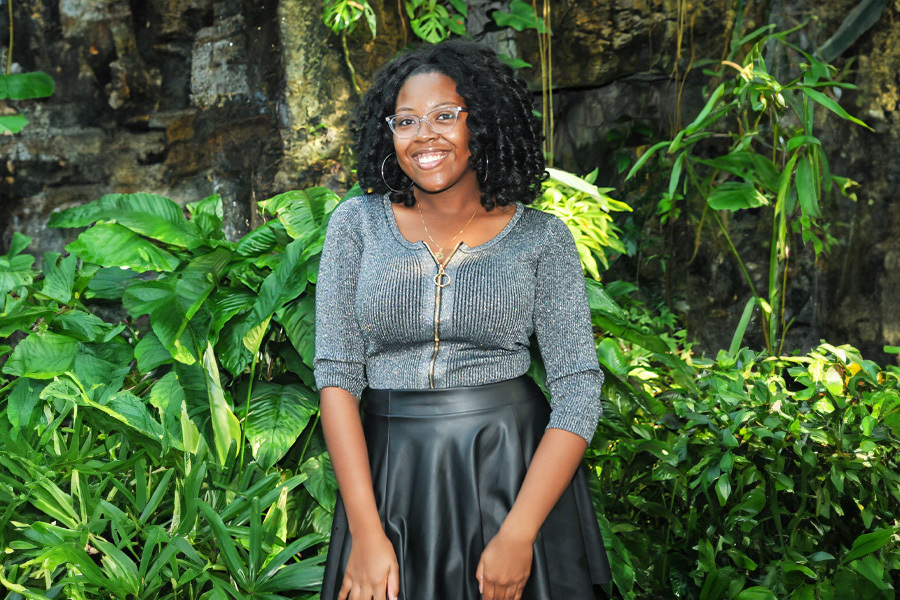
“[Atiya] personifies the mission of the All of Us Research Program with her dedication to pursue research that can benefit communities we serve.”—Crystal M. James, J.D., M.P.H., mentor at Tuskegee University and interim vice president for external affairs and general counsel
During the darkest months of the pandemic, when the country also was gripped by a racial reckoning, graduate student Atiya Shahid lost multiple family members and friends to illness and a gun violence epidemic in her hometown of St. Louis. In one week, she attended a double funeral for her young cousin, killed by gunfire, and his grandmother, who passed away during the same time after complications from a fall.
Consumed by grief, she despaired about continuing her education in public health. “I was in a very dark place,” Atiya said. She turned to her family and friends and her mentors at Tuskegee University, who provided an outpouring of support and encouragement.
Eventually, Atiya began to appreciate the value of her name, which her mother had chosen for its Arabic meaning: “precious gift.”
“My mom always told me, ‘Your light shines so bright and makes me have hope in the world,’” Atiya said. “I didn’t realize how important I was and how much impact I could have. If I had not been determined to be here, I wouldn’t be here right now.”
Around the same time, Atiya’s advisers at Tuskegee suggested she apply for the All of Us Research Program’s inaugural 2021 Minority Student Research Symposium (MSRS). Inclusion of diverse participants and researchers is one of the core principles of All of Us. The program is partnering with prominent institutions and organizations across the country to engage researchers from a wide range of backgrounds and facilitate studies that can improve health outcomes for all. Elevating their research through the symposium is one way the program supports young investigators. MSRS is designed to engage minority students and faculty mentors, who use the program’s Data Browser to develop a research project and present their findings.
“Atiya is extremely intelligent and an eager learner,” said one of her mentors, Crystal M. James, J.D., M.P.H., interim vice president for external affairs and general counsel at Tuskegee. “She also personifies the mission of the All of Us Research Program with her dedication to pursue research that can benefit communities we serve.”
Early Influences
By advancing the field of public health research, Atiya believes she can address and improve the social ills she witnessed growing up in St. Louis with activist parents. Although her parents divorced when she was a toddler, they joined together at protests, bringing Atiya along to learn from the community classroom.
“When Michael Brown was killed in Ferguson, it changed my whole perspective,” Atiya said. Michael Brown, an 18-year-old Black teen, was fatally shot in 2014 by a white police officer, not far from where Atiya grew up. The incident sparked protests across Ferguson and fueled simmering tensions across the country. Atiya’s father, Anthony Shahid, led the “hands up, don’t shoot” protests.
“I saw firsthand the effects of the disparities, racial oppression, educational needs, cultural biases, and so much more,” Atiya said. “I wanted to do something to make an impact. The field of public health was holistic and covered sociology, psychology, and health disparities, along with many other factors.”
The experience helped bring her career path into focus. Her grandmother—who had worked as a hospital nurse in the 1960s—inspired Atiya to pursue public health. She declared public health as her major at Xavier University of Louisiana shortly thereafter.
Building Momentum
Several years later, at Tuskegee University, she became the first student to enter a dual degree program, earning a master’s degree in public health expected this May and continuing towards a Ph.D. in interdisciplinary pathobiology. Atiya took her advisers up on their suggestion to apply to the All of Us symposium and was accepted as an MSRS Scholar. The opportunity reignited her passion for research to benefit her community.
Her project, completed in collaboration with her mentor, Ehsan Abdalla, Ph.D., assistant professor of public health at Tuskegee, centered on cervical cancer disparities in the United States. Atiya’s presentation highlighted staggering statistics on cervical cancer rates and risks among Black women. For example, she found that Black women die of cervical cancer at a rate nearly double that of white women. Her research tapped data from All of Us and the Centers for Disease Control and Prevention’s Behavioral Risk Factor Surveillance System.
Atiya won second place at the symposium, and the experience motivated her to continue her dissertation on the topic. She is focusing on the rural Black Belt region of Alabama, where cervical cancer rates are particularly high. The region’s name refers to its agricultural history and rich black topsoil, historically cultivated by African American slaves.
“One of the key reasons for the disparities and poor health outcomes among Black women is the lack of information,” Atiya said. “I’m hoping the research with Dr. Abdalla will help increase awareness and access to cervical cancer screenings and improve prevention and treatments.”
The symposium was pivotal for Atiya, and paved the way for more opportunities. She went on to serve as the student representative to the symposium’s advisory board, providing input on planning for this year’s All of Us Researchers Convention, a virtual two-day event March 31–April 1 that includes the MSRS. Atiya is scheduled to give closing remarks on Science Day, April 1.
“Atiya is a shining example of the promise of an HBCU [historically Black colleges and universities] student,” said Lilanta Joy Bradley, Ph.D., assistant professor of community medicine and population health at the University of Alabama. A number of HBCUs are partnering with the event.
Dr. Bradley, who also serves as a community engagement lead for All of Us, said Atiya fully embraced the mentorship and networking opportunity, both as one of the first scholars participating in the symposium and as an Advisory Committee member. “Atiya has added invaluable insights to move the symposium forward,” she said.
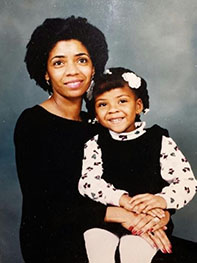
Atiya credits the many champions in her life, as well as her strong faith, for helping her along the way.
“So many people have believed in me and given me opportunities,” she said. “I was overjoyed participating in the symposium, as I wasn’t in the best place last year. It was a bright moment after a dark time.”
Atiya’s mother, Marva Richardson, noted that her daughter was an early learner, reading at a young age, and always a top student. She said her faith and pride in her daughter have been strengthened in the last several years as she watched her daughter conquer challenges and make a commitment to improve public health.
“It comes easy to love her,” Marva said. “She is my hero.”
Share your story with All of Us
If you would like to recommend someone to be featured, please submit a suggestion to All of Us.
Are you Interested in the All of Us Research Program?
- Learn about participation in the program.
- Learn about opportunities for researchers.
